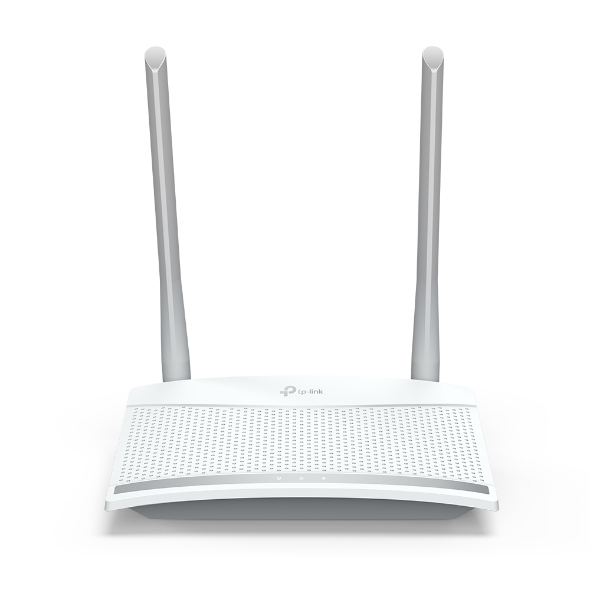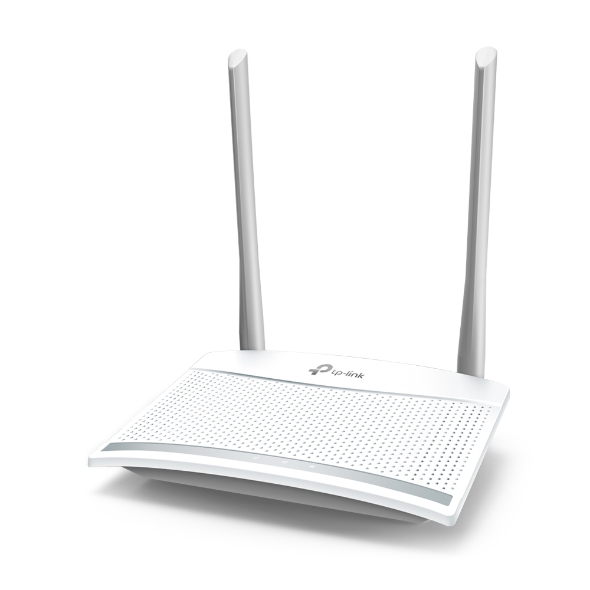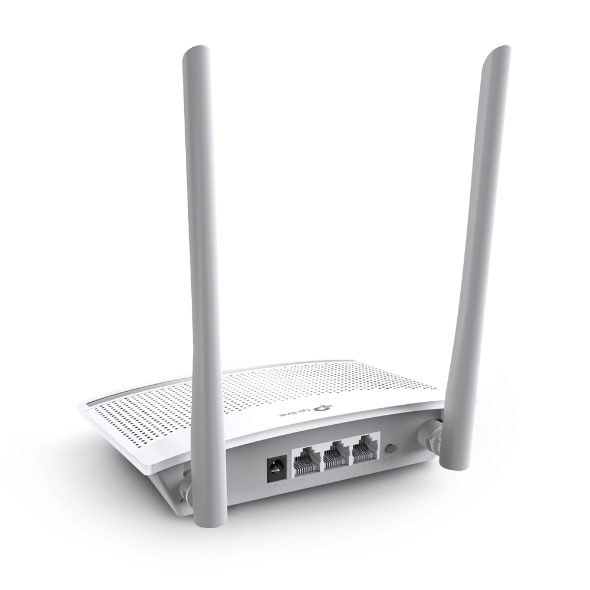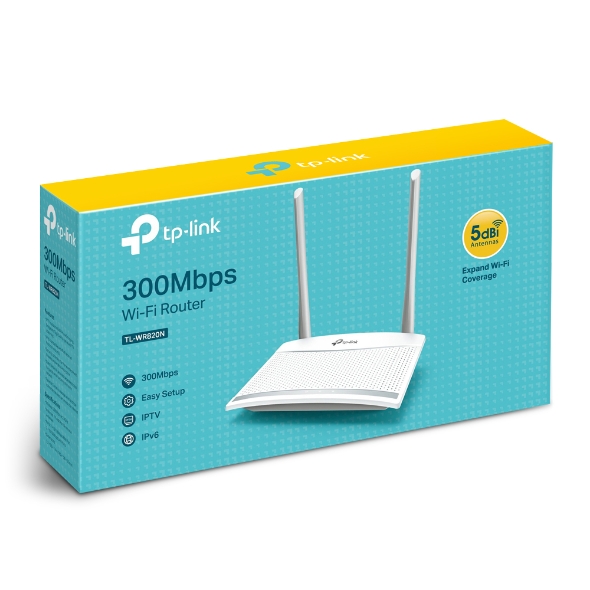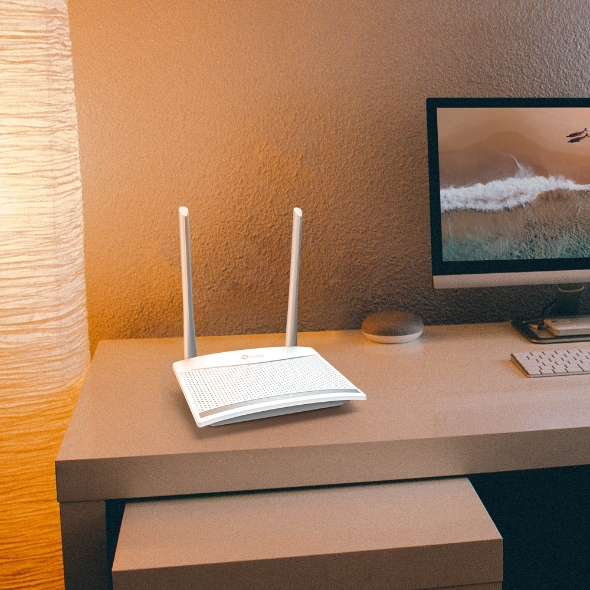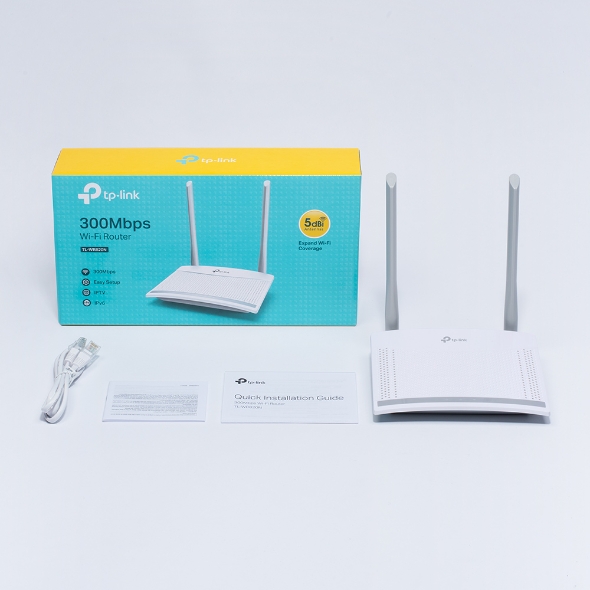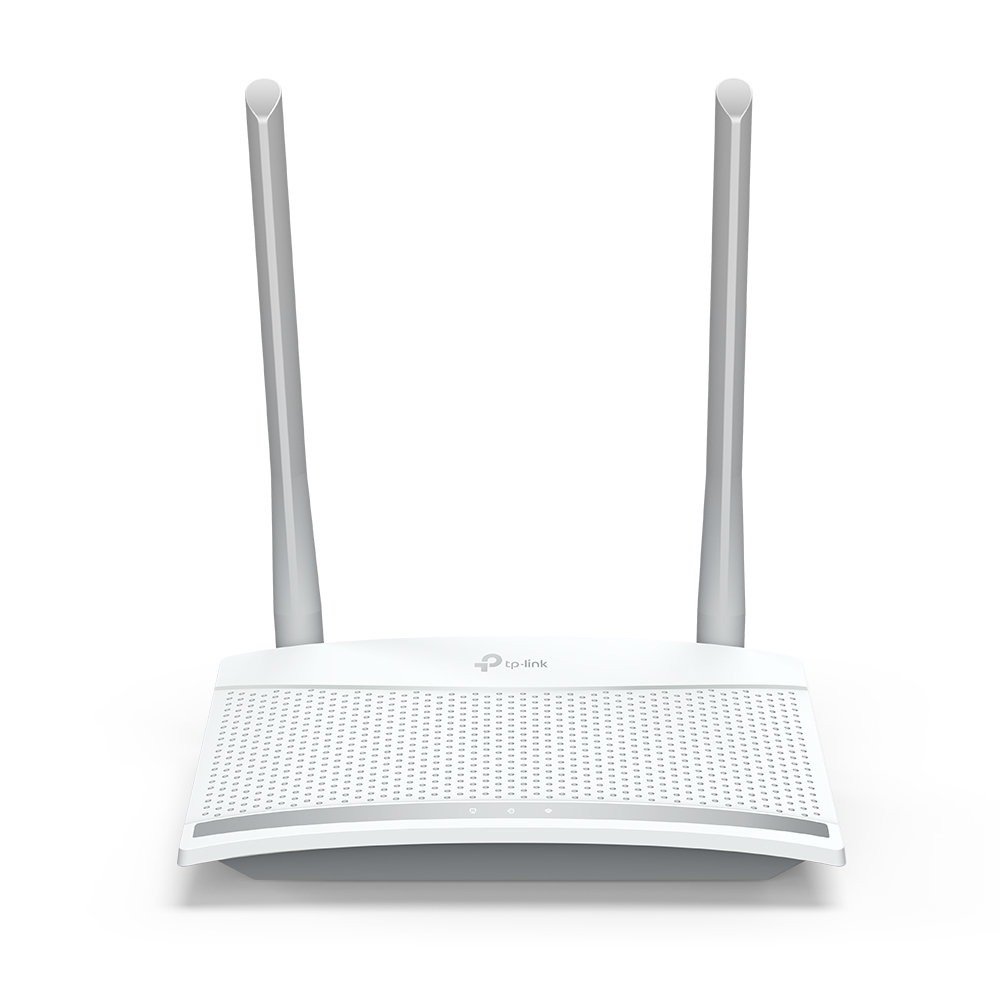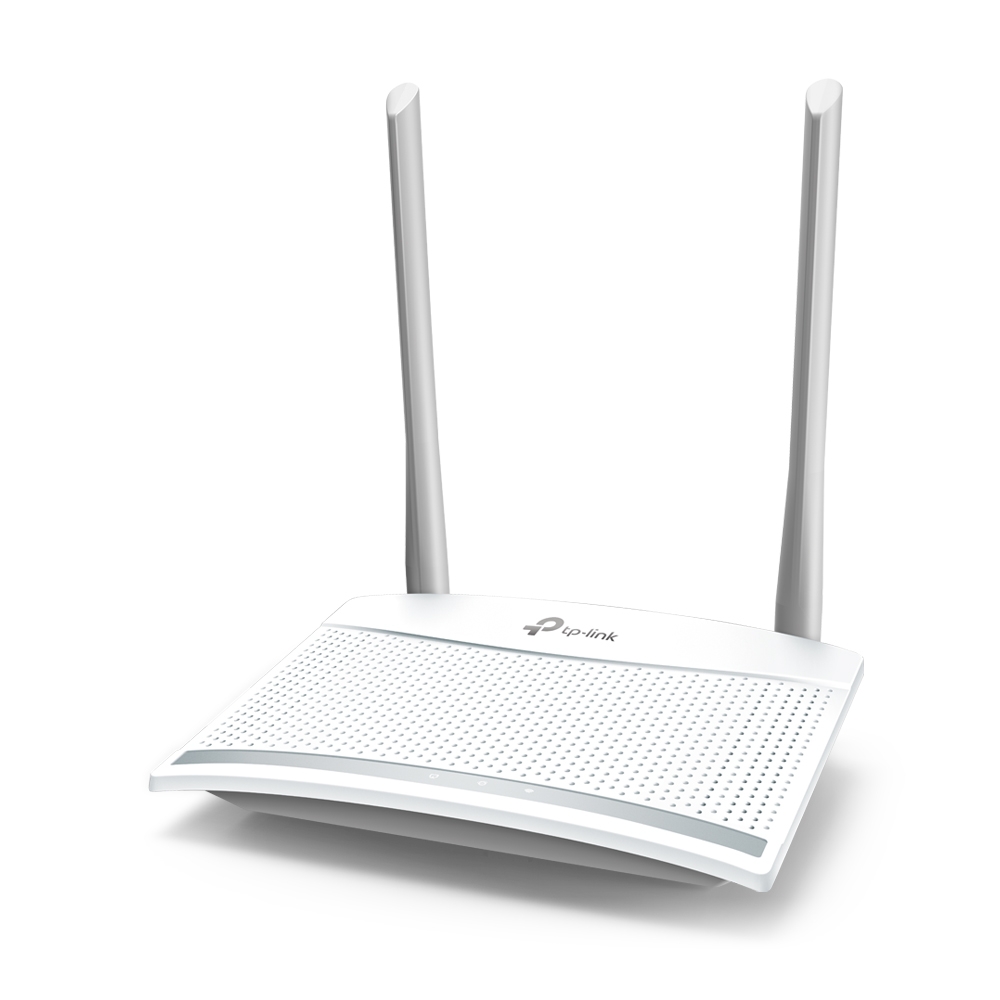TL-WR820N
New300Mbps Wireless N Speed
- 300Mbps wireless transmission rate ideal for both bandwidth sensitive tasks and basic work
- IPTV supports IGMP Proxy/Snooping, Bridge and Tag VLAN to optimize IPTV streaming
- Compatible with IPv6 (Internet Protocol version 6)
- Guest Network provides separate access for guests while securing the host network
- Parental Controls manage when and how connected devices can access the internet
- Security protocols protect your home network with firewalls and wireless encryption
Wi-Fi Ideal for Everyday Use
300Mbps Wireless N Speed
TL-WR820N
300Mbps Wireless N Speed - Fast Downloads
TL-WR820N is compatible with IEE 802.11b/g/n and provides a high-speed Wi-Fi. Enjoy speeds of up to 300 Mbps for even your most demanding home networking needs, such as HD streaming, online gaming, and downloading large files.
Strong Signal, Great Coverage
Two powerful 5dBi antennas and 2×2 MIMO enhance wireless transmission to deliver broader wireless coverage with stronger signal intensity.
Smooth Video Streaming
IGMP Proxy/Snooping, Bridge, and Tag VLAN support optimizes IPTV streaming so you can enjoy your favorite movies and shows lag-free.
Guest Network
The Guest Network function provides secure access for guests to use your Wi-Fi network. Share with anyone, without compromising your private network.
Premium Design
An ergonomic shape and sleek texture makes for a stylish addition to any room. A hole-punched top plate dissipates heat to ensure long-term functionality and stable operation.
IPv6 Compatible
Compatible with the most recent Internet Protocol version (IPv6) keeps your router future-proof and allows you to enjoy IPv6 services provided by your ISP and visit IPv6 websites.
-
Parental Controls
-
IPv6
-
Easy Setup
-
Certificate
| WIRELESS | |
|---|---|
| Standards | Wi-Fi 4IEEE 802.11n/b/g 2.4 GHz |
| WiFi Speeds | N3002.4 GHz: 300 Mbps (802.11n) |
| WiFi Range | 2 Bedroom Houses 2× Fixed Antennas |
| WiFi Capacity | Legacy |
| Working Modes | Router ModeAccess Point ModeRange Extender ModeWISP Mode |
| SECURITY | |
|---|---|
| Network Security | SPI FirewallAccess ControlIP & MAC BindingApplication Layer Gateway |
| Guest Network | 1× 2.4 GHz Guest Network |
| WiFi Encryption | WPAWPA2WPA3WPA/WPA2-Enterprise (802.1x) |
| HARDWARE | |
|---|---|
| Processor | Single-Core CPU |
| Ethernet Ports | 1× 10/100 Mbps WAN Port2× 10/100 Mbps LAN Ports |
| Buttons | Reset Button |
| Power | 5 V ⎓ 0.6 A |
| SOFTWARE | |
|---|---|
| Protocols | IPv4IPv6 |
| Parental Controls | URL FilteringTime Controls |
| WAN Types | Dynamic IPStatic IPPPPoEPPTPL2TP |
| Quality of Service | QoS by Device |
| NAT Forwarding | Port ForwardingPort TriggeringDMZUPnP |
| IPTV | IGMP ProxyIGMP SnoopingBridgeTag VLAN |
| DHCP | Address ReservationDHCP Client ListServer |
| DDNS | NO-IPDynDNS |
| Management | Tether AppWebpageCheck Web Emulator> |
| OTHER | |
|---|---|
| System Requirements | Internet Explorer 11+, Firefox 12.0+, Chrome 20.0+, Safari 4.0+, or other JavaScript-enabled browserCable or DSL Modem (if needed)Subscription with an internet service provider (for internet access) |
| Certifications | FCC, CE, RoHS |
| Environment | Operating Temperature: 0℃~40℃ (32℉ ~104℉)Storage Temperature: -40℃~70℃ (-40℉ ~158℉)Operating Humidity: 10%~90% non-condensingStorage Humidity: 5%~90% non-condensing |
| TEST DATA | |
|---|---|
| WiFi Transmission Power | CE:<20dBm(2.4GHz)FCC:<30dBm |
| WiFi Reception Sensitivity | 270M: -70dBm@10% PER130M: -74dBm@10% PER108M: -74dBm@10% PER54M: -77dBm@10% PER11M: -87dBm@8% PER6M: -90dBm@10% PER1M: -98dBm@8% PER |
| PHYSICAL | |
|---|---|
| Dimensions (W×D×H) | 4.5 × 4.2 × 1.0 in(115 × 106.7 × 24.3 mm) |
| Package Contents | Wi-Fi Router TL-WR820NPower AdapterRJ45 Ethernet CableQuick Installation Guide |
† Maximum wireless signal rates are the physical rates derived from IEEE Standard 802.11 specifications. Range, coverage, and the maximum number of connected devices are based on test results under normal usage conditions. Actual wireless data throughput, wireless coverage, and number of connected devices are not guaranteed and will vary as a result of 1) environmental factors, including building materials, physical objects, and obstacles, 2) network conditions, including local interference, volume and density of traffic, product location, network complexity, and network overhead, and 3) client limitations, including rated performance, location, connection quality, and client condition.
